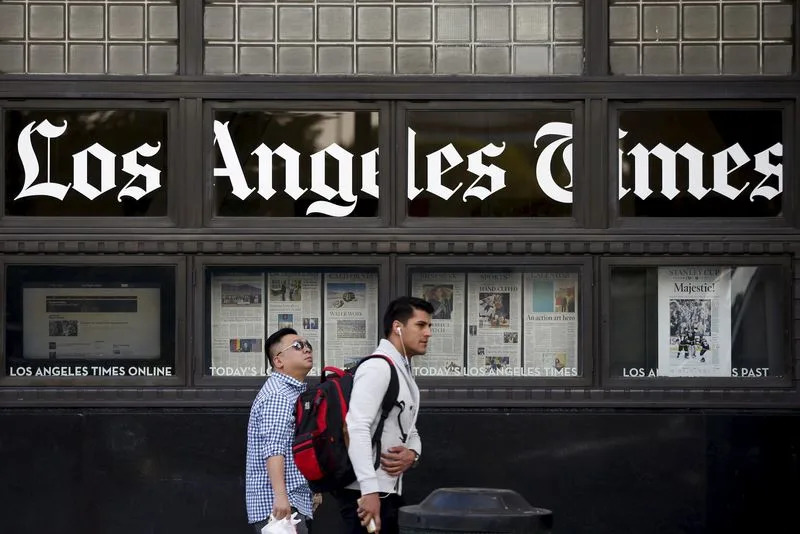
Los Angeles Times to go public, owner Soon-Shiong says
Key Points
- Los Angeles Times to Go Public: Owner Patrick Soon-Shiong announced plans to take the 143-year-old newspaper public within the next year, aiming to democratize ownership.**
- Public Ownership Model: The structure will be similar to the NFL's Green Bay Packers, allowing the public to own shares of the publication, with a partner organization assisting in the setup.**
- Recent Turmoil: The newspaper has faced significant challenges, including layoffs of over 20% of its newsroom staff in January and leadership exits amid annual losses of $30-40 million.**
- Editorial Controversy: The editorial editor resigned last year after Soon-Shiong reportedly blocked an endorsement of Kamala Harris, leading to subscriber backlash.**
Summary
The Los Angeles Times, a 143-year-old publication, is set to go public within the next year, as announced by its billionaire owner, Patrick Soon-Shiong, during an interview on "The Daily Show" with Jon Stewart. Soon-Shiong aims to democratize ownership of the newspaper by adopting a model similar to the public ownership structure of the NFL's Green Bay Packers, with a partner organization working on the framework. This decision comes after a tumultuous period for the LA Times, marked by significant financial losses of $30-40 million annually and substantial layoffs in January, where over 20% of the newsroom staff were cut. Leadership changes have also rocked the paper, with key exits including Executive Editor Kevin Merida and Managing Editor Sara Yasin. Additionally, controversy arose when the editorial editor resigned after Soon-Shiong reportedly blocked an endorsement of then-Vice President Kamala Harris, sparking subscriber backlash. Soon-Shiong, who acquired the LA Times in 2018 for $500 million from Tronc, is steering the newspaper toward a new era of public involvement amidst ongoing challenges. The LA Times did not immediately respond to Reuters for further details on the public offering plans.
yahoo
July 22, 2025
Stocks


